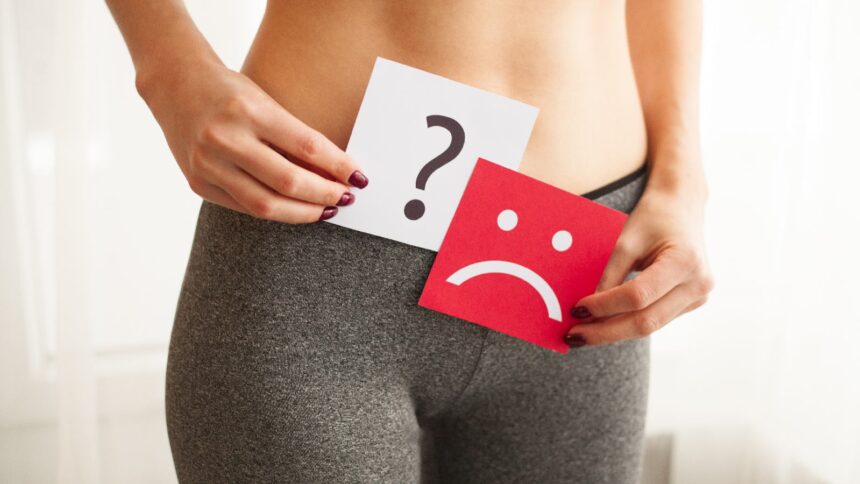Antibiotics can help treat bacterial infections by killing bacteria and slowing growth. However, yeast infections can also be obtained from antibiotics.
Antibiotics are powerful drugs that help treat bacterial infections. Urinary tract infections, pneumonia, and ear infections are just some of the health issues these drugs can tackle. All you have to do is have tablets, capsules or liquids or apply cream and lotion. They can effectively treat some infectious diseases, but they can also cause health problems. You can get yeast infections from antibiotics. This type of infection occurs when there is overgrowth of Candida bacteria in various parts of the body, including the vagina. Understand the relationship between medication and yeast infection.
What is yeast infection?
Yeast infection or candidiasis is the overgrowth of fungi caused by Candida, a type of yeast that is naturally present in our body. “When an imbalance occurs, it generally affects the vagina, mouth, throat and gastrointestinal tract,” says gynecologist Dr. Sriprada Vinekar. According to the US Centers for Disease Control and Prevention, vaginal yeast infections cause persistent itching, but they are one of the most common fungal infections. “This could be due to high sugar intake, weakened immune system, changes in hormones during pregnancy, or wearing tight clothing,” experts say.

Yeast Infection from Antibiotics: What is Link?
It is possible to obtain yeast infections from antibiotics. A 2008 study published in the Journal of the American Board of Family Medicine found that non-pregnant women ages 18 to 64 required oral antibiotics for non-gyNaecological diseases. Researchers found that oral antibiotic use increased the prevalence of vaginal yeast infections.
Here’s how antibiotics can cause vaginal yeast infections:
1. Kill good bacteria
Lactic acid bacteria help to maintain a slightly acidic vaginal pH (potential of hydrogen) and prevent yeast overgrowth. “You can get vaginal yeast infections from antibiotics because the medicine reduces these good bacteria and makes yeast more likely to flourish,” says the expert.
2. It weakens immune defense
Antibiotics can reduce the effectiveness of the immune system in combating infections. “They can change the immune system’s response to pathogens such as bacteria, fungi, and viruses. When the immune system weakens, the body’s natural ability to continue to control Candida, which can lead to infection,” experts say.
Yeast infections from antibiotics: know which is more likely to cause candidiasis
Yeast infections from antibiotics are possible, but not all of them cause it. “Broad-spectrum antibiotics targeting a wide range of bacteria are likely to cause yeast infections,” says Dr. Vinekar. A 2023 study published in Cell Host & Microbe showed that participants who received broad-spectrum antibiotics for more than seven days increased the likelihood of developing candidiasis.
Here are broad spectrum antibiotics that can cause yeast infections.
- tetracyclineThese drugs can treat chlamydia infections, pelvic inflammatory diseases, syphilis, and acne.
- Clindamycinis: Used to treat skin, lung and blood infections.
- Amoxicillin: Used to treat chest infections, including pneumonia.
- Cephalosporine: They can treat urinary tract infections, ear infections, pneumonia, meningitis, go disease.
“Women taking these antibiotics, especially for long periods of time, are at a higher risk of developing yeast infections,” experts say.
How to get rid of yeast infections from antibiotics?
If you develop yeast infections from antibiotics, follow these steps to treat and prevent them.
1. Use antifungal medications
Over-the-counter antifungal creams and dip agents such as clotrimazole, miconazole, or thioconazole may be useful in treating vaginal yeast infections from antibiotics. “Fluconazole is a single-dose oral antifungal that a doctor can prescribe,” says Dr. Vinekar. If you are frequently required antibiotics, ask your doctor about taking antifungal medications along with antibiotics to prevent yeast overgrowth.
2. Take probiotics
Yogurt contains lactobacillus. This helps to restore good bacteria in the body. “Probiotic supplements can be consumed with Lactobacillus axidophilus to maintain a vaginal pH balance,” says an expert. However, consult your doctor before taking these supplements to treat vaginal yeast infections from antibiotics.

3. Increase your intake of natural antifungal foods
There is also natural vaginal yeast infection treatment. “Garlic has garlic containing allicin, which has antifungal properties. Coconut oil can also help treat vaginal yeast infections from antibiotics, as it contains caprylic acid, which can fight candida,” experts say.
4. Avoid irritants and fluids
Wear vaginal underwear and loose clothing to dry out the vaginal area and discourage the yeast from growing. “Also, avoid scented soaps, vaginal dutch and women’s sprays that can exacerbate irritation caused by vaginal yeast infections from antibiotics,” the expert says.
5. Maintain hydration
Drink plenty of water to help wash away excess yeast from your body and remove any vaginal discomfort. There are 8-10 glasses of water and healthy drinks. “Also, yeast can easily thrive on sugar, so reduce sugar and refined carbohydrates,” experts say.
Yeast infections from antibiotics are possible, especially when taking a wide range of drugs. If you have a vaginal yeast infection, you may experience itching. It has probiotics, maintains hydration and removes yeast infections using anti-fungal creams. Discuss with your doctor before taking your medication.
Related FAQs
How to wash away yeast from your body?
Yeast overgrowth, in particular Candida, can cause infection in various parts of the body. To flush it off, you need a combination of dietary changes, hydration, probiotics, and lifestyle adjustments. Drink 8-10 glasses of water every day to wash away toxins and excess yeast from the system through urine and sweat. Consumes fermented foods such as kimchi, sauerkraut and sugar-free yogurt to restore intestinal balance.
Can drinking a lot of water help you clean up the yeast infection?
Drinking a large amount of water can help support your body when washing away toxins. Hydration helps the body eliminate excess yeast through urine and sweat. Proper hydration will maintain an optimal pH balance and make yeast more difficult to thrive. However, water alone cannot cure yeast infections. You still need probiotics or fermented foods to balance your gut and vaginal plants.
Is it normal to experience itching after antibiotics?
Yes, feeling itching after taking antibiotics can be normal in some cases, but it can also indicate an allergic reaction or a yeast infection. Antibiotics kill both harmful and beneficial bacteria, destroying the vagina and intestinal flora. This can lead to overgrowth of Candida yeast, causing vaginal itching, irritation and drainage.












